As a general rule of thumb, most experts recommend staying under 50 calories to remain fasted when intermittent fasting, but no studies are confirming the amount. It does, however, depend on what you eat, as certain foods are quicker to kick you out of a fasted state.
Fasting in any form has been something that’s gained significant interest over the past few years.
From weight loss and less inflammation to more energy, appetite control, and cognitive health, there’s no shortage of benefits to curbing food intake for a specific number of hours.
But while there are more perks to fasting than you can count on one hand, there’s still something many people are confused about: What breaks a fast?
Some experts say you can have certain drinks or small snacks, while others stick to water only.
In this article, we’re looking through the research to find the answer to how many calories break a fast.
Ready to get started?
Key Takeaways
- Any calories technically break a fast—but many people use a practical rule of staying under ~50 calories to keep most fasting benefits. :contentReference[oaicite:1]{index=1}
- Your goal matters: for autophagy/gut rest, stick to water-only; for weight-loss/ketosis, tiny low-carb intakes may be acceptable. :contentReference[oaicite:2]{index=2}
- “Dirty fasting” allows small intakes (e.g., coffee with a splash of cream, MCT, bone broth), but evidence is limited versus true fasting. :contentReference[oaicite:3]{index=3}
- Fast-friendly picks: plain water, black coffee or tea, zero-cal capsules/electrolytes (no sugars or fillers). :contentReference[oaicite:4]{index=4}
- Keep carbs minimal if ketosis is the aim—insulin spikes are more likely to blunt fasting mechanisms than tiny calories alone. :contentReference[oaicite:5]{index=5}

The basics of dirty fasting

Before we get into the caloric side of things and what breaks a fast, there’s an informal concept in the fasting world we call dirty fasting.
In most cases, a fast means you abstain from consuming all food and beverages with any caloric value when intermittent fasting. That means sugar in your tea or coffee is out; bone broth is out; slightly sweetened beverages are out—you get the point.
But in some types of fasting, there are exceptions to the rule, where small amounts of food or drinks are okay to consume and won’t break your fast. While you’re not consuming diet soda pop or a small meal, certain things might get the green light.
We call this dirty fasting—be forewarned, this isn’t a medical term, and there’s no scientific research on its benefits or how it compares to “clean fasting.”
We use this term when discussing consuming some calories during your fasting window. This term differs from traditional fasting, where consuming any calories is prohibited.
Depending on how you practice dirty fasting, you can consume anywhere from 50 to 100 calories daily with foods like coffee with milk/cream or bone broth, but some people may consume less.
Essentially, this is a modified form of alternate-day fasting (a.k.a. intermittent fasting), whereby you consume a small number of calories, usually around 500, in your eating window. 1
People who advocate for alternate-day fasting period protocols suggest that a small number of calories per day will still allow you to achieve the benefits of fasting without cutting calories cold turkey.
It’s also the premise behind other types of diets with short intermittent fasting periods, such as the “fasting-mimicking diet.”
Is dirty fasting effective?
But is dirty fasting as effective as traditional fasting when intermittent fasting?
As we said, there isn’t much scientific research to go on where dirty fasting is concerned, but any form of fasting that gives your digestive system a break may offer health benefits.
For example, if you’re looking to lose body weight or lose body fat, dirty fasting may be an easier approach to fasting that can promote fat loss.
However, some people choose to use an intermittent fasting plan, thanks to its lengthy list of health benefits, such as promoting autophagy, reducing insulin resistance, regulating blood sugar levels, and more. 2, 3
While adding a splash of milk or sipping on a cup of bone broth isn’t the same as having a full meal, technically speaking, consuming any calories is not a true fast, regardless of how many.
And most experts agree that the only way to ensure you’re in a true fasted state is to abstain from consuming any calories (i.e., you’re drinking water only).
So, while dirty fasting might not be effective to the same extent as traditional fasting, it may offer some benefits, but more research is needed.
Key takeaway: There’s no scientific evidence to support the efficacy of a modified fasting diet like dirty fasting, so the only way to ensure you are in a fasted state is to abstain from consuming any food or drink with a caloric value.
Related Post: Is it Good or Bad to take Pre Workout On Empty Stomach?
How many calories will break a fast?
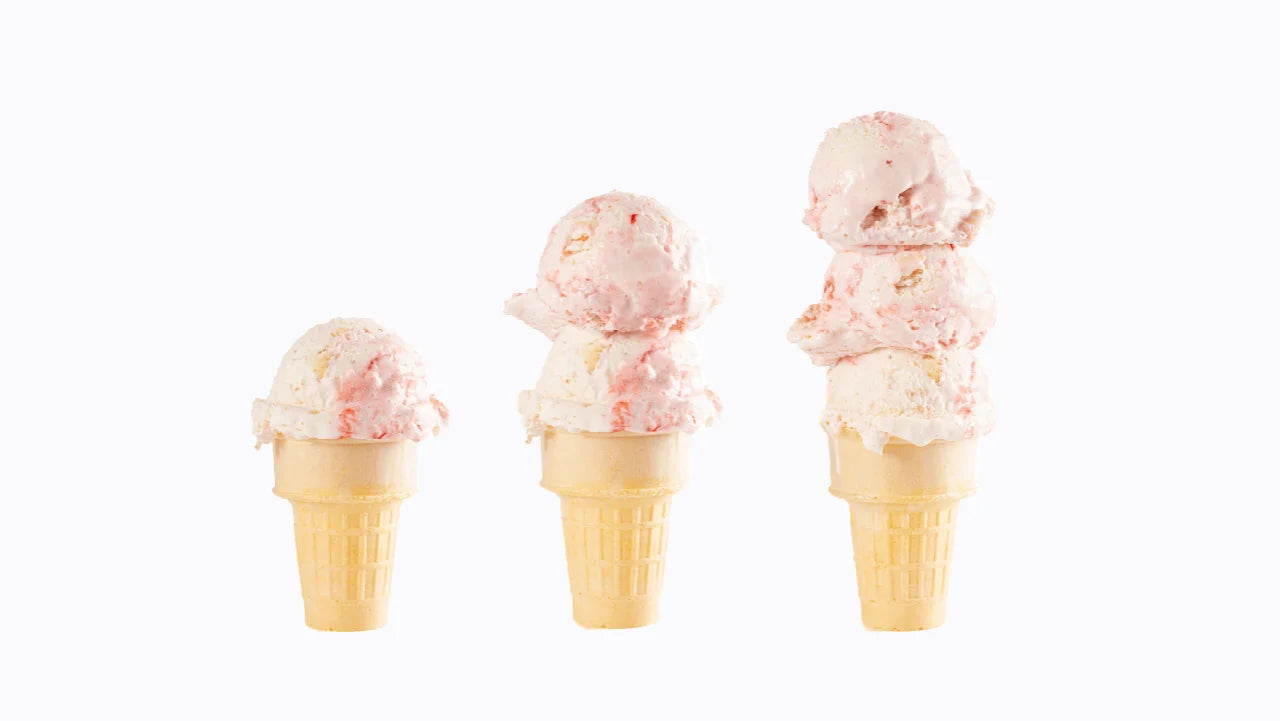
You’ll find hundreds of studies on the benefits of intermittent fasting for all sorts of health-related outcomes—fat burning, weight loss, cognitive health, inflammation, metabolic health, longevity, and more. 4 Many of these benefits are achieved on a keto diet by entering a state of metabolic ketosis.
But while research shows many benefits to fasting, most people still need clarification in one area: How many calories break your fast?
Generally speaking, there’s no clear answer.
Some research suggests you must stick to water-only fasts to reap the benefits when intermittent fasting, while others suggest that coffee, tea, MCT oil or coconut oil, and even bone broth are acceptable during the fasting window.
The general rule for consuming calories during a fast is to stay under 50. That said, even very few calories will technically break your fast because you’re not in a true “fasted state.”
Some experts suggest that while a small number of calories won’t curb your efforts completely, it can inactivate some of the perks you’ll get from fasting.
Ketosis may remain active with a few calories, but other processes like autophagy might not. It’s thought that any increase in insulin levels will downregulate autophagy, so we avoid consuming food to keep insulin levels low. 5
Key takeaway: Most studies on the beneficial effects of fasting are done with zero calorie intake, so it’s assumed that any calories can break your fast.
However, some research suggests that certain mechanisms behind fasting’s benefits, like ketosis, remain activated when specific macronutrients are consumed, while others are deactivated.
Related Post: Does Prebiotic Fiber Break a Fast? - A Complete Guide
How many calories break ketosis?
The transition out of ketosis is less about total calorie intake and more about the source of those calories, particularly carbohydrates, when intermittent fasting.
In a ketogenic diet, maintaining a state of ketosis—where the body burns fat for energy instead of glucose—requires strictly minimal calories from carbs. In fact, carbohydrate intake is limited to 20-50g daily. Exceeding this carbohydrate limit can prompt an insulin response and blood sugar spike. This breaks a fast, pulls the body out of ketosis and halts fat burning.
While intermittent fasting can complement a ketogenic diet by potentially enhancing fat oxidation and insulin sensitivity, the key to staying in ketosis lies in monitoring carbohydrate consumption, not just calorie intake.
Ensuring that the majority of calories come from healthy fats and proteins, with minimal carbs (especially from unhealthy foods), is crucial for sustaining ketosis and achieving weight loss goals.
What can you eat while fasting?
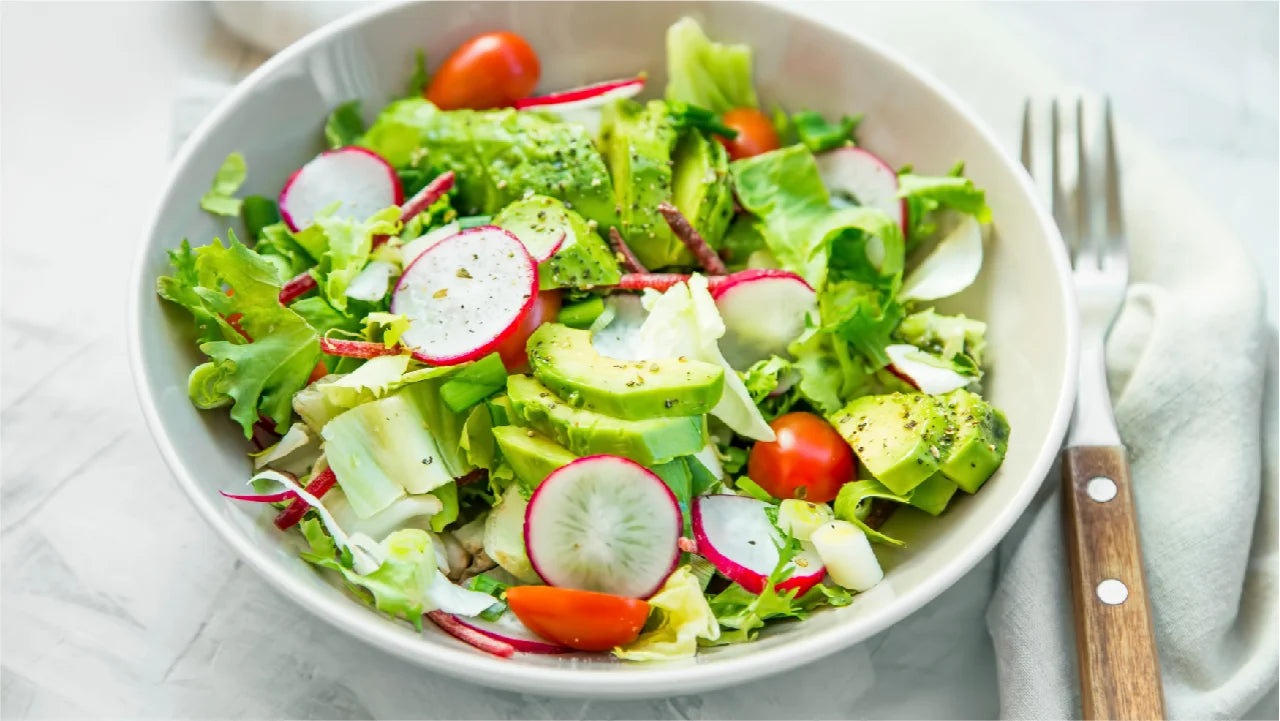
An all-or-nothing approach isn’t always suitable for everyone, and it’s not always sustainable—but there are plenty of benefits from modifying your approach to fasting periods when intermittent fasting. Certain foods can maintain many of the benefits of fasting and keep you sane.
If you consume calories during a fast, keep them small and avoid anything that will cause an insulin response.
One mechanism we know remains active with food intake is ketosis, which allows you to consume less than 50 grams of carbs per day while staying in a ketotic state. 6
Some effects, however, may vary based on whether you’re following a water-only fast or a modified low-calorie version.
So, what can you eat if you’re going to consume calories? Let’s weigh in on a few options:
Coffee and tea
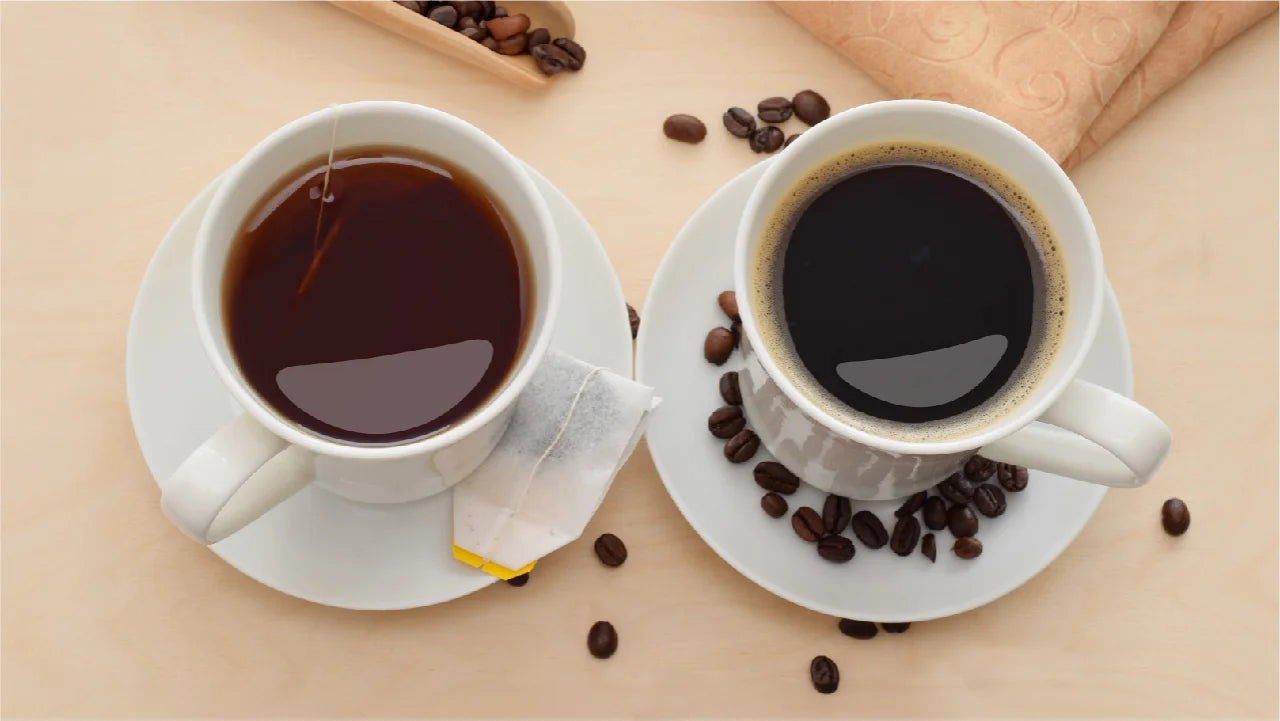
Even if avoiding calories, many people consume coffee and herbal teas when intermittent fasting—but will they break a fast?
In their pure state, black coffee and plain tea have minimal calories. So theoretically, coffee and tea shouldn’t reduce any fasting benefits, but they could slightly reduce autophagy.
That said, rodent studies suggest the opposite. A 2014 study published in Cell Cycle found that coffee actually induced autophagy in mice to a greater extent than with no calories at all. 7 But whether this applies to humans isn’t clear.
Coffee also works as an appetite suppressant, which may benefit people who find it hard to do a water-only fast. And some studies even show that coffee can amplify some of fasting’s benefits, such as improving insulin sensitivity. 8
So, good news: If you want coffee and tea during a fast, go for it—just keep it clean. For example, a hot mug of fresh green tea with nothing added. And be mindful of how these beverages affect your otherwise empty digestive system.
Healthy fats
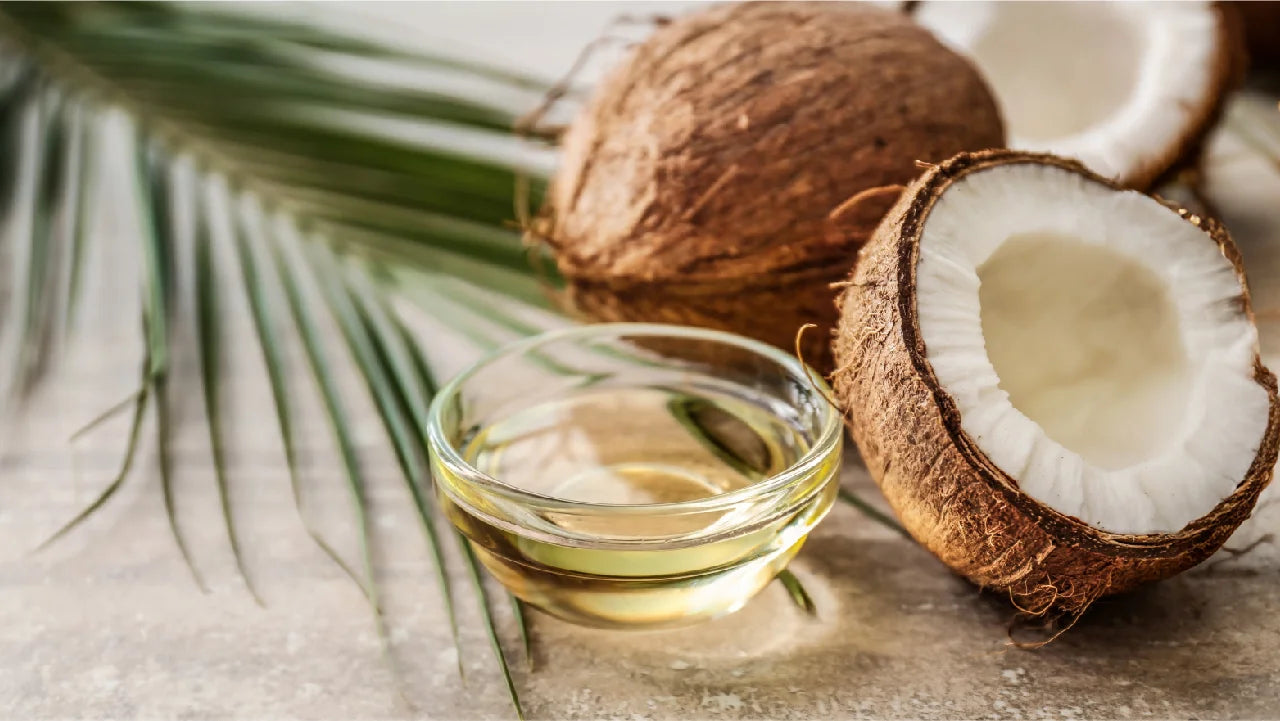
Healthy fats are another grey area when intermittent fasting. Although most fats contain more than 50 calories per serving, there’s also something called a “fat fast,” whereby you consume calories in the form of pure fat.
You’ve also likely heard of Bulletproof Coffee (coffee + MCT oil + grass fed butter) for keeping you in a fasted state until lunch. MCT oils (or coconut oil in a pinch) may have benefits for fasting and ketosis.
A fat fast will technically break a fast because it reduces autophagy, but it can be effective to curb hunger while maintaining many other benefits of fasting.
Consuming fats during a fast can also benefit hormone balance, as it can keep insulin and cortisol levels lower than on a water-only fast. This is especially true for anyone dealing with adrenal or thyroid issues.
Bone broth
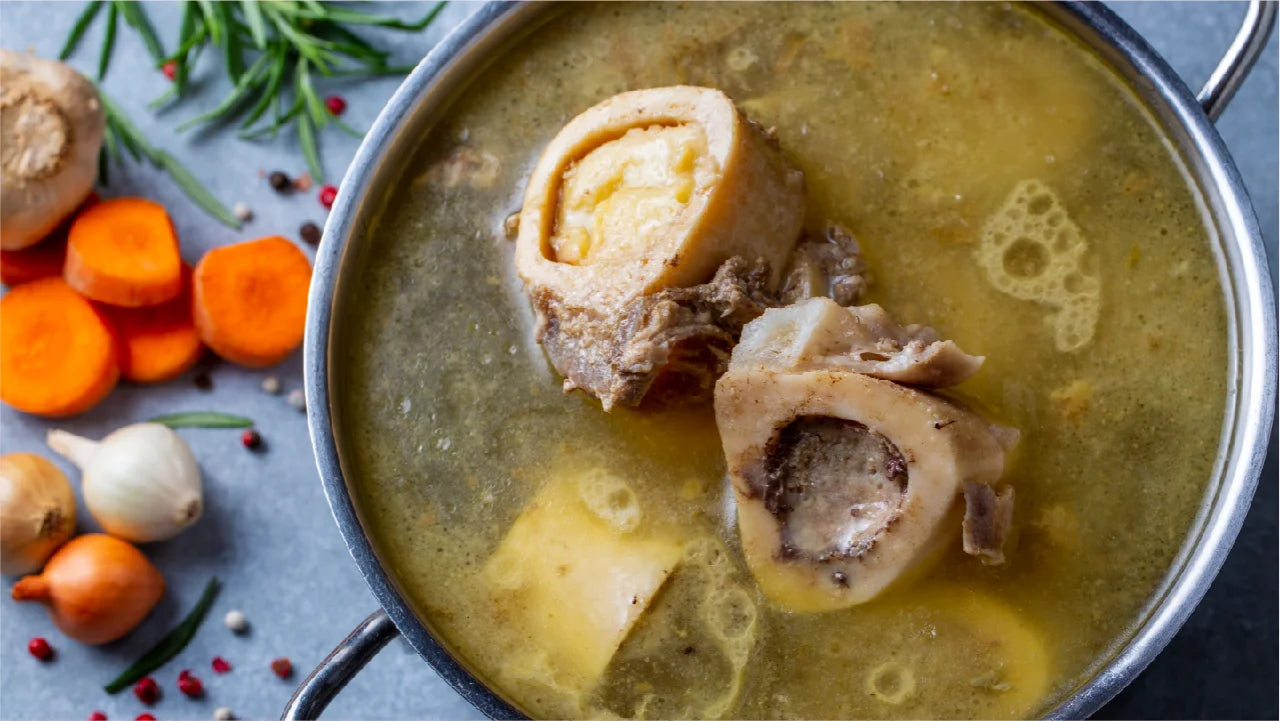
Another beverage that’s often given the green light when intermittent fasting is bone broth. Again, this will break a fast, but depending on the end goals, it could be a brilliant addition to your fasting protocol.
Why? It’s loaded with nutrients and can help restore electrolytes, especially during a prolonged fast. Bone broth is a rich source of gelatin and the amino acid glutamine, which are hugely beneficial for gut health.
However, some studies show that glutamine activates mTOR, which inhibits autophagy, so you don’t want to go nuts with broth. 9
Electrolytes
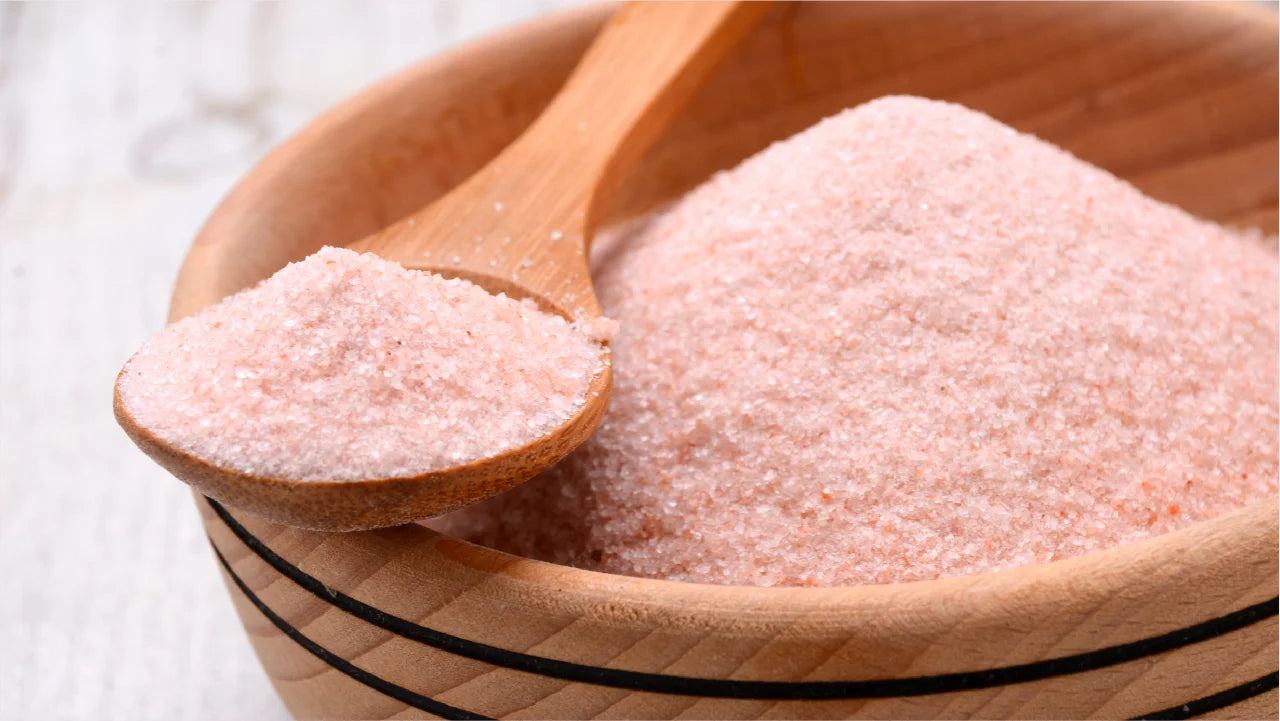
Water fasting, which involves consuming only water for extended periods when intermittent fasting, poses risks due to the absence of nutrient intake and the flushing away of essential minerals like sodium, potassium, and magnesium through increased urination.
This mineral depletion can lead to electrolyte imbalances, affecting heart rhythm, muscle function, and overall cellular operations. The absence of calorie intake can also strain the body, potentially leading to muscle loss, weakened immunity, vitamin deficiencies, and, in severe cases, organ failure.
Additionally, fasting without medical supervision can exacerbate pre-existing health conditions or result in dangerous complications, such as orthostatic hypotension (a drop in blood pressure upon standing), severe dehydration, and kidney damage.
For these reasons, water fasting is yet another of the fasting protocols that should be approached with caution and under professional guidance.
Did you know? Himalayan Pink Salt is a natural source of electrolytes sodium, potassium and magnesium (plus trace minerals) that can be taken during fasting.
Do supplements contain enough calories to break your fast?
It really depends on the supplement when intermittent fasting! In general, "clean label" supplements using high-quality ingredients and zero fillers or artificial additives are unlikely to break a fast. However, people practicing intermittent fasting should be aware that some lower quality supplements may actually contain sugar or other caloric ingredients, as well as non-caloric artificial sweeteners, that will likely disrupt a fast.
Learn more about which supplements may break a fast
Final thoughts
So how many calories to break a fast, ultimately, when intermittent fasting? The safest bet is zero calories for maintaining a fast and getting the greatest benefits from your fast. But as we’ve discussed in this article, some fasting protocols suggest minimal intake of calories can still help you reap some fasting benefits with less discomfort.
Fasting in any sense of the imagination can be tricky, but its health benefits far outweigh the hunger pangs that come with avoiding food.
If you want to maintain proper nutrition while you remain in a calorie deficit, but aren’t thrilled with intake that breaks a fast, certain supplements can fill that gap—but not all supplements are fast-friendly.
Here are our picks for the best fast-worthy supplements:
- Performance Lab NutriGenesis Multi to supply essential nutrients you need during fasting periods without breaking your fast
- Performance Lab Prebiotic to support and balance gut bacteria for optimal weight loss, fat burn, and overall health; supports satiety to help you restrict calories comfortably
- Performance Lab Caffeine 2 to increase energy during your fasting window; replaces coffee
- Performance Lab MCT Energy Oil for burning fat, maintaining ketosis, helping you lose weight and other fast-related metabolic benefits.
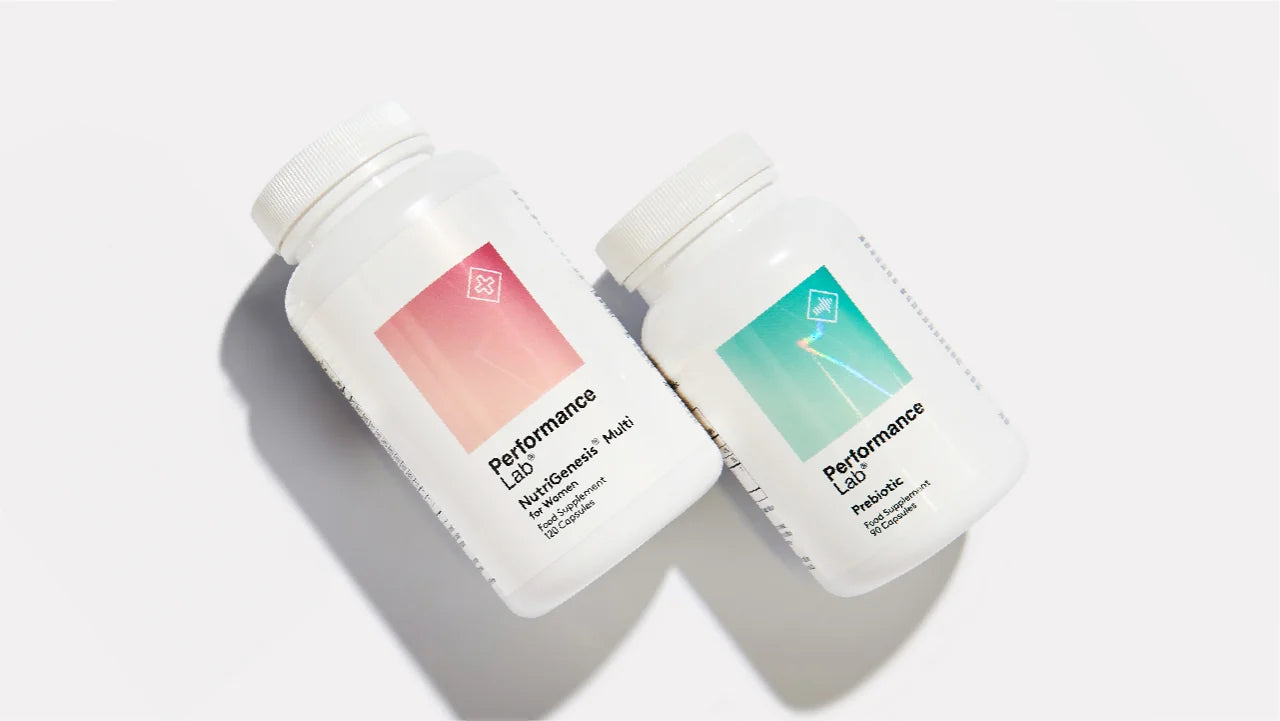
This stack is an ultra-clean blend of supplements that can be consumed during intermittent fasting periods to help you get through the fatigue and grogginess that a fast can bring—all while keeping you in a fasted state.
References
- Parvaresh A, Razavi R, Abbasi B, et al. Modified alternate-day fasting vs. calorie restriction in the treatment of patients with metabolic syndrome: A randomized clinical trial. Complement Ther Med. 2019;47:102187.
- Mattson MP, Longo VD, Harvie M. Impact of intermittent fasting on health and disease processes. Ageing Res Rev. 2017;39:46-58.
- Patterson RE, Sears DD. Metabolic Effects of Intermittent Fasting. Annu Rev Nutr. 2017;37:371-393.
- Stockman MC, Thomas D, Burke J, Apovian CM. Intermittent Fasting: Is the Wait Worth the Weight?. Curr Obes Rep. 2018;7(2):172-185.
- Chung KW, Chung HY. The Effects of Calorie Restriction on Autophagy: Role on Aging Intervention. Nutrients. 2019;11(12):2923.
- Masood W, Annamaraju P, Uppaluri KR. Ketogenic Diet. (Updated 2022 Jun 11). In: StatPearls (Internet). Treasure Island (FL): StatPearls Publishing; 2022 Jan-.
- Pietrocola F, Malik SA, Mariño G, et al. Coffee induces autophagy in vivo. Cell Cycle. 2014;13(12):1987-1994.
- Shi X, Xue W, Liang S, Zhao J, Zhang X. Acute caffeine ingestion reduces insulin sensitivity in healthy subjects: a systematic review and meta-analysis. Nutr J. 2016;15(1):103.
- Jewell JL, Guan KL. Nutrient signaling to mTOR and cell growth. Trends Biochem Sci. 2013;38(5):233-242.
















